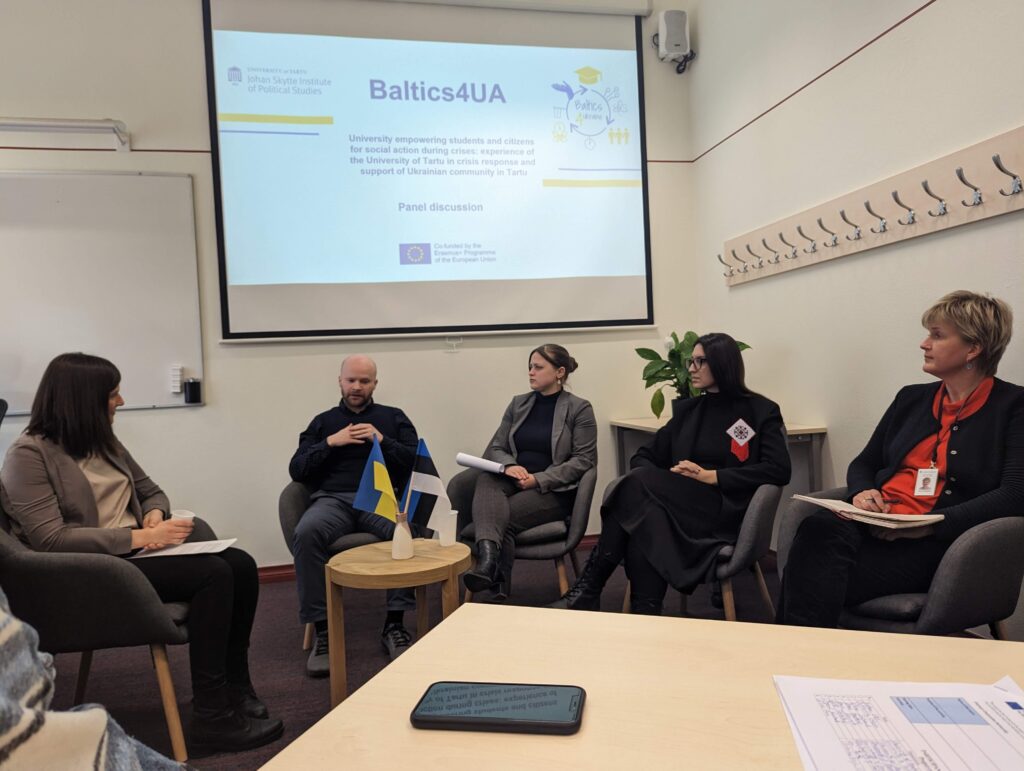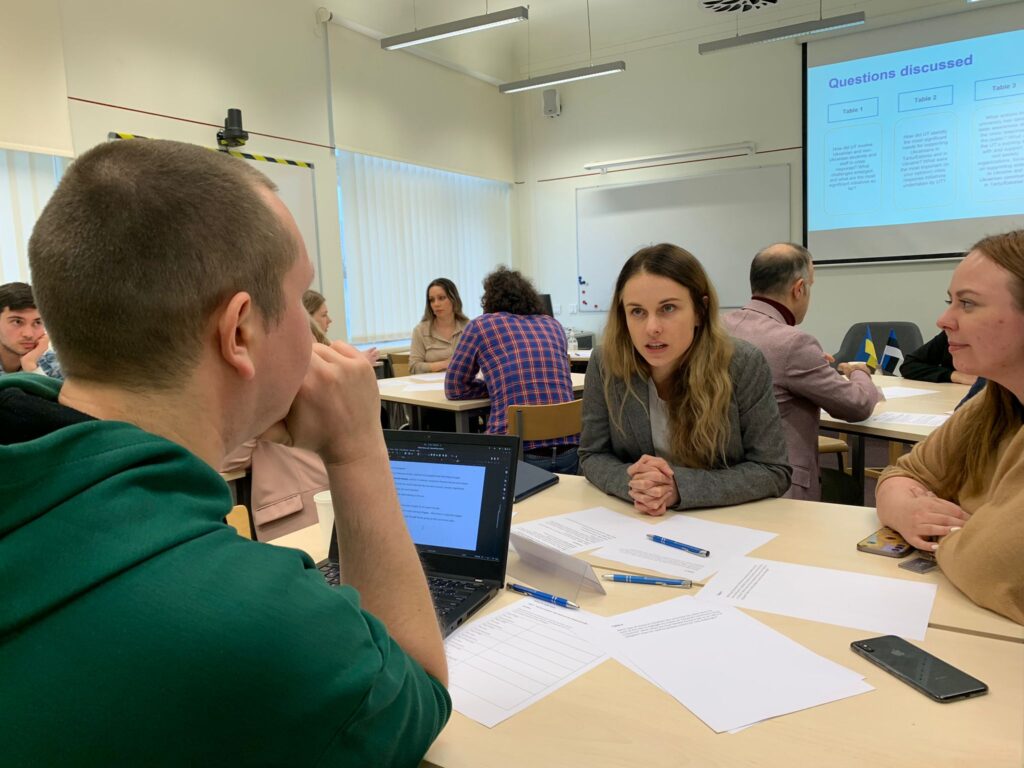The Johan Skytte Institute of Political Studies at University of Tartu held a workshop on April 4
2023, to initiate a discussion among university staff and students regarding the university’s approach
towards the Ukrainian community arriving in Estonia due to Russia’s aggression against Ukraine. The
aim of the workshop was to acknowledge the university’s successful efforts and identify areas that
require improvement.

The workshop included a panel discussion with experts in international marketing,
internationalization, intellectual property, and applied social sciences, who discussed initiatives
organized by UT to support Ukrainian students and the wider Ukrainian community. Anna Branets,
the International Marketing Specialist at UT, discussed the initiatives organized by UT to support
Ukrainian students and the wider Ukrainian community. Ulle Tensing, the Internationalization
Advisor at the Office of Academic Affairs, discussed UT’s resilience and flexibility in making
exceptions to the existing academic rules and regulations, with the aim of assisting Ukrainian students
who were already enrolled at UT by the time the war started, as well as newcomers. Alina Paas, an
Intellectual Property Analyst at UT and a co-founder of the NGO Ukraina Maja, a local NGO that
serves as a community builder between Ukrainians in Tartu and Estonia, talked about dozens of
cultural events organized for war refugees who arrived in Tartu, involving cultural institutions such as
the Estonian National Museum, the Tartu Toy Museum, AHHAA, the University of Tartu Natural
History Museum, and others as partners. Siim Espenberg, the Director of the Center for Applied
Social Sciences at UT, discussed the research that was conducted in this direction after the outbreak of
the war.
Participants were then divided into groups and asked to provide their opinions on various aspects of
UT’s involvement in supporting the Ukrainian community in Tartu. Groups discussed the following
questions:
- How did UT involve Ukrainian and non-Ukrainian students and staff in crisis response?
- What challenges emerged, and what are the most significant initiatives so far? What can we
learn from these experiences and what can be adopted? - How can UT in the future involve more students in crisis response? What can be learned from
students?

The event had a significant impact, as it helped identify crucial points that will be addressed in
upcoming project deliverables. Involving multiple stakeholders with varying expertise and
perspectives led to more nuanced discussions and a more comprehensive understanding of the
challenges faced by the Ukrainian community in Tartu. The outcomes and insights from the workshop
will be compiled into an open-access publication to ensure broader dissemination of the information
and insights shared during the event.